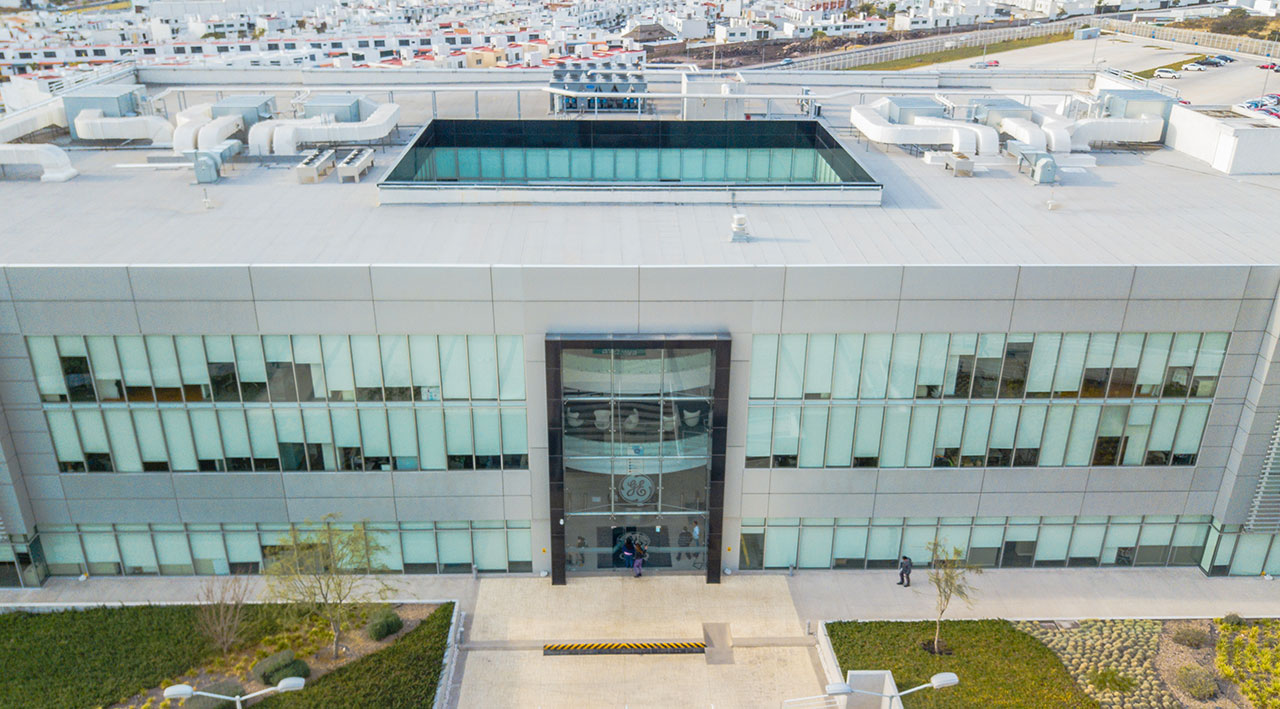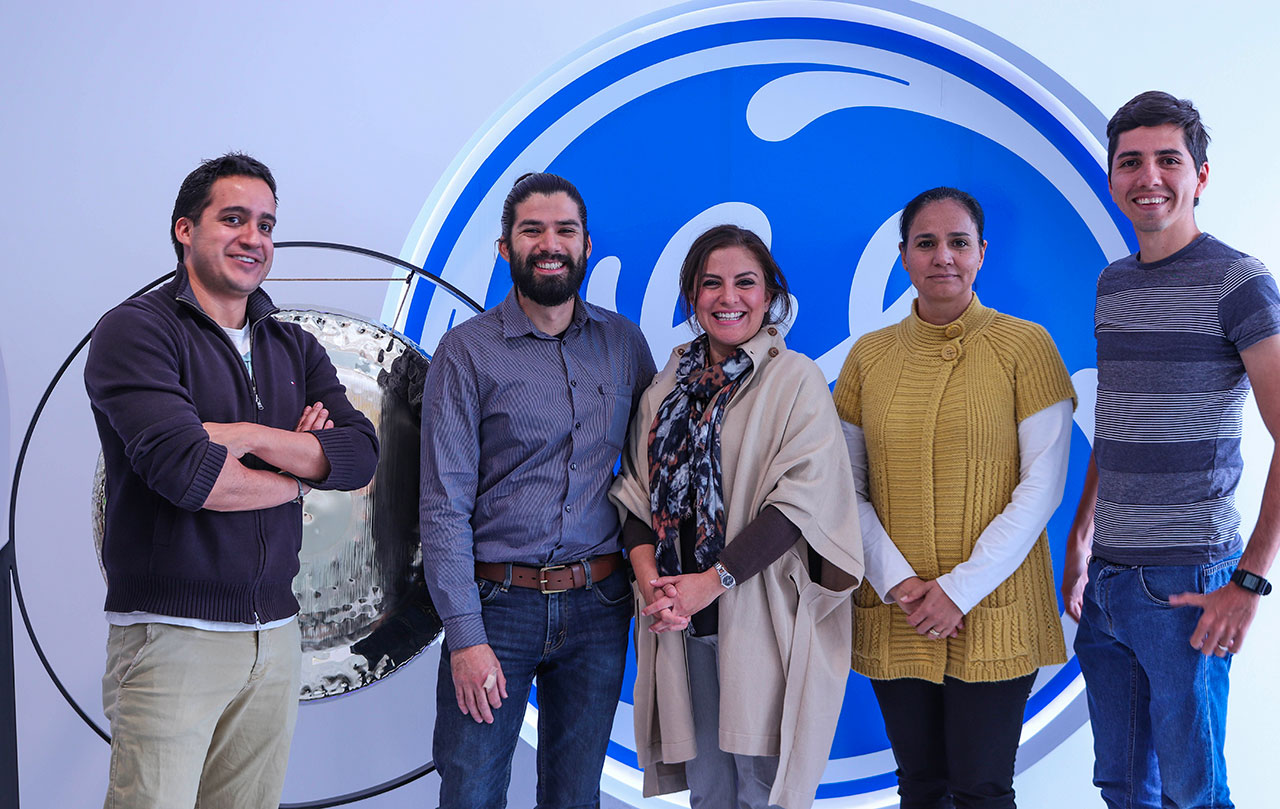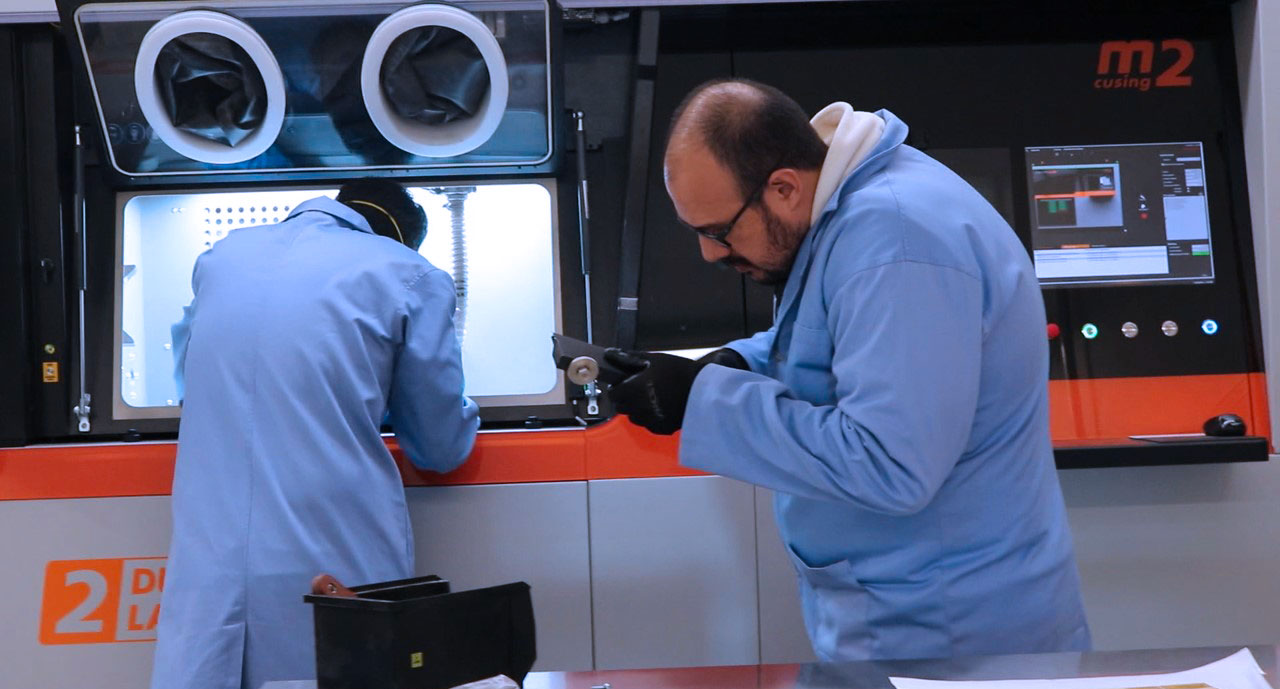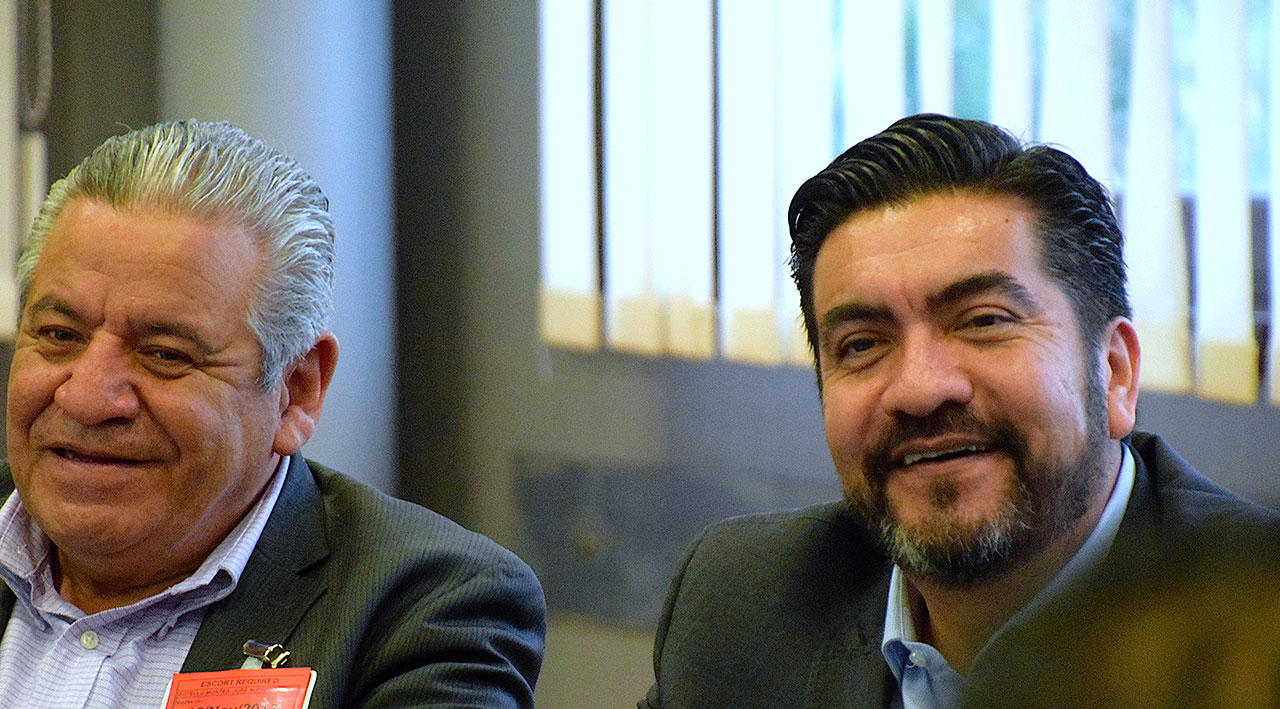Future
TECH - MEX
A group of Mexican GE engineers, national institutions, university professors and researchers touring Europe to see first-hand technological wonders and enjoy the network effect.
Feb 2019
The State of Querétaro, right at the centre of Mexico, is the most industrially developed area in the country, and it’s even boosted by the presence of engineering and technology centers. In fact, Queretaro represents the cornerstone of aviation industry for Mexico: in 2017, it was ranked fourth among top places worldwide for investments in aerospace by the FDI magazine. The Mexican state territory is home to some 80 aerospace organizations, including 8 academy institutions.
This is the reason why the development of collaboration strategies between government, industry and academia becomes a hot topic for these R&D centers. The local GE owned engineering center – GEIQ, Infrastructure Queretaro – includes Power, BHGE Renewable Energy and Aviation businesses. The GEIQ teams focused on the Aviation business count some 1200 people out of the total 1700 employees, pursuing developments in several technological disciplines: Mechanical & Electronics design, Control Systems design, Embedded & platform software, Field & Manufacturing support.
For several years, GEIQ already fostered collaborations with universities and research centers throughout the country, and some weeks ago a delegation made up of local institutions and government representatives, as well as professors and researchers, crossed the ocean to start a European tour aimed at exchanging tech-collaboration top practices.
“We visited facilities and met engineers at Avio Aero in Turin (Italy), EDC in Poland and headed to the Marshall of the Mazovian region, seeing a strong commitment from all parties in making the strategic alliances work” says Veronica Mendez Magana, Government Relations & Business Development at GEIQ. “Indeed, our intent was to learn everything about certain joined projects that can be exported from Europe to Mexico.”
Veronica Mendez Magana knows that the win-win approach in public-private partnerships makes a difference, because “each party brings in a specific contribution and addresses a specific need”. During the European trip, the Mexican delegation adopted the Italian GE Aviation business, Avio Aero, as a role model of partnership between companies, universities and SMEs. “Avio Aero relies on a strategic approach and has a long experience in building scientific and technological collaboration networks, our mission for this year is based on emulating the Avio Aero’s TED communities purpose: that is, establishing a collaborative research network to gain access to the best Mexican academic cutting edge research capabilities, talents, creativity and government funding” continues Mendez Magana.
Such unique way of doing innovation and research allows to build unique relationships in the European industry, becoming an enabler as well as a paramount allied for the manufacturing teams. Likewise, in Mexico a GE Aviation’s Unison plant covers 100,000sqm employing 500 people in Saltillo, Coahuila region up north from Querétaro. The GEIQ works as an “engineering special support” for the Unison’s operations in Saltillo: several activities are coordinated between the two teams. GEIQ, just for example, serves as Manufacturing Work Instructions Approver (interpreting design and facilitating reviews), but also moves manufacturing product line from one site to another.
"Our mission is based on emulating the Avio Aero’s TED communities purpose: a collaborative research network to gain access to the best Mexican academic cutting edge resources"
Avio Aero's R&D collaboration network was built over time, starting almost twenty years ago with the University of Pisa: young designers are a key component of it and their education, first-hand learning, is the reason why HR and Engineering teams have established fundamental relationships with Universities. Not only to identify and hire the best talents, but also to train them with dedicated courses and master's degrees: the state of Querétaro and public institutions are also interested in doing so.
"We are here because we want to learn and we believe we can replicate the model you have successfully developed," confirms Jorge Gutierrez de Velasco, Director of UNAQ (Aeronautic University of Queretaro). "The state of Querétaro has the most interests in the aeronautical field and the institutions want to move hand-in-hand with universities and small-medium enterprises to promote the education of our young people, research and employment. We know that working with GE, the best and most skilled company, is a privilege and a boost in motivation.”
The Mexican CIDESI (National R&D Center for Industry) is partner of choice for GEIQ on several technology development projects: as an example, the most notable joint project is the National Consortium of Additive Manufacturing. “This is not the only project in collaboration with them, we do have other projects ongoing connected to the Aviation business” says Mendez Magana. CIDESI is equally interested in expanding its collaboration network with global R&D centers, universities and private industries, aiming at growing talents in the country.
CIDESI was obviously part of the delegation that exchanged views with Avio Aero and visited the Politecnico di Torino (one of the Avio Aero legacy partners, starting from the very first lab in the university campus): in particular, the CIDESI interest concerns shared courses and learning experiences provided by the Aviation professionals to students’ classes. CIDESI indeed is designing a new additive master’s degree with UNAQ, Aeronautical University of Querétaro, and would benefit from the contents of the similar master’s degree of Politecnico.
The state of Querétaro has the highest percentage of PhD students and highly specialized profiles in the aeronautical field. Jesus Gonzalez, Director of CIDESI (National R&D Center for Industry) and representative of CONACYT (National Science and Technology Council), is ready to take on the challenges of additive manufacturing and training new talents in new generation production processes. "We have been able to count on significant funding for our new laboratory. I know that we have a lot to do and can invest in the excellence of our human capital for the aeronautical industry" says Dr. Gonzalez.
"We can replicate the model you have successfully developed here in Europe. For our University, working with GE, the best and most skilled company, is a privilege and a boost in motivation"
The delegation was also able to visit the almost 2 years old Turin Additive Lab inside the Politecnico di Torino campus, amazed by the development of 3D metal printing technologies. “We would like to explore any opportunities further together with the Avio Aero team” concludes Mendez Magana, while groundbreaking a new technological partnership between Europe and Latin America, a continent that has been growing in terms of air transport and will definitively continue to do so.








